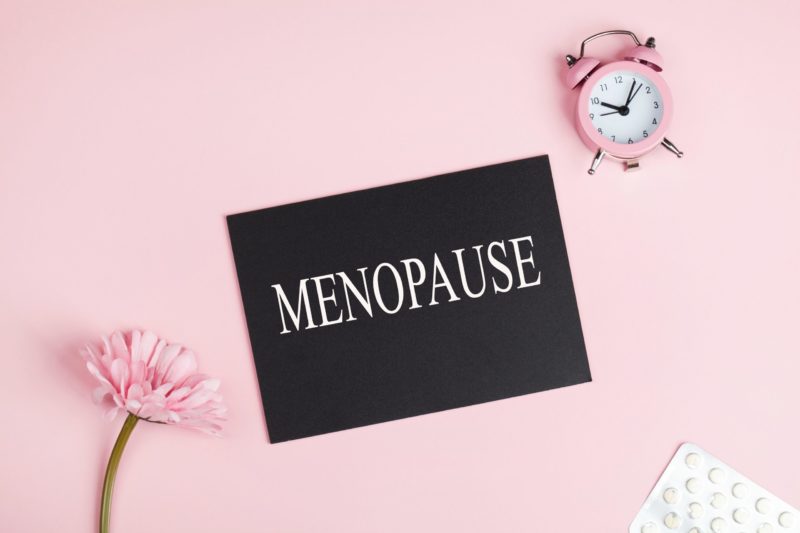
For many women, menopause can be a very difficult time due to the embarrassment our culture has created surrounding this stage of life. As a result, too many women suffer needlessly from the symptoms of menopause. So, what are some of the common menopause symptoms?
Dr. Lisa Nguyen, a physician at Nava Health and Vitality Center, has been helping women deal with their menopause symptoms for 20 years. She encourages women to consult a healthcare professional about treating their menopause symptoms and discussing options for menopause relief.
However, you do not have to suffer alone through this life transition. Nava’s doctor Lisa Nguyen encourages women to consult a healthcare professional about treating their menopause symptoms and discussing options for menopause relief. “The most important thing I want my menopausal patients to understand is that this is a natural part of life, and although every individual will experience menopause in their own personal way, it is crucial not to wait until symptoms get unbearable or worse than expected to take action.”
“The most important thing I want my menopausal patients to understand is that…it is crucial not to wait until symptoms get unbearable or worse than expected to take action.”
So what are the symptoms of menopause? Here are 10 common symptoms of menopause women should know, and what you can do about them:
Note: Is Hormone Therapy the Answer?
The uncomfortable symptoms of menopause are mostly the result of hormonal changes in your body. Hormone therapy, especially bio-identical hormone therapy that uses hormones that are the same as those your body produces (as opposed to synthetic hormones), can be a very effective treatment for all symptoms of menopause.
1. Hot Flashes
This is one of the most common symptoms of menopause. It can happen during the day or at night (night sweats) making it more difficult to get a restful sleep. Although you cannot avoid these flashes, Dr. Nguyen recommends drinking red raspberry tea to bring relief. However, she encourages patients to talk to their doctors and explore Bio-Identical Hormone Replacement Therapy as an option.
2. Weight Gain
As the human body changes, so do your hormones. This process may lead to an increase in weight, especially around the abdomen area, hips, and thighs. Maintaining a low-carb and healthy diet can make weight loss easier during menopause. If you are unsure about what you should be eating, make sure to meet with a nutrition expert to provide clarification and create an action plan.
3. Sleep / Insomnia
The majority of women report having trouble sleeping during menopause, which often results in weight gain. To avoid this, reduce stimulants at night, schedule massage therapy to manage stress levels, and talk to your practitioner about incorporating tranquinol to regulate your sleep. If this does not help, ask your doctor about the use of progesterone and if it is right for you.
4. Decreased Sex Drive
The estrogen and testosterone levels drop during menopause and this often results in loss of libido, lack of sexual desire, and even performance anxiety. Some ways to help revive your sex drive include exercising to get your endorphins going, making time for dates and prepping the bedroom for romance while setting the mood for intimacy.
5. Vaginal Dryness
Menopause hormone levels begin to decline, including estrogen, reducing the fluid the vaginal wall naturally creates, which causes the dryness and loss of elasticity. Nava’s Dr. Nguyen recommends estrogen therapy to alleviate vaginal dryness. For those looking for a non-hormonal alternative, they can try using aloe vera which is a natural moisturizer and water-based lubrication during sexual intercourse.
6. Irritability / Mood Swings
Stereotypical, but definitely a clear sign of menopause. It is a roller-coaster of being happy and then feeling irritable to anxious or upset rather quickly. Physical activity can help these drastic mood swings by getting your endorphins going. Avoid unhealthy and sugary foods to help regulate your mood.
7. Fatigue
Menopausal fatigue is a common sign of hormonal imbalance. The changes in your hormones can affect your adrenal glands resulting in exhaustion and decreased energy levels. It is very important to stay hydrated when feeling fatigued while keeping stress to a minimum. Maintaining a healthy diet and reducing caffeine intake might also help boost your energy levels.
8. Body Aches
Usually accompanied with stiffness or joint pain, menopause can sometimes cause body aches, especially in the morning. Nava’s Dr. Nguyen advises to limit physical activity, including hiking, running, or jogging. She also suggests working with your doctor to relieve the pain and asking if magnesium is good for you. Many women do report its effectiveness as it helps relax tense muscles, produce energy, and maintain cardiac muscle.
9. Migraines
Migraines tend to become more common when women are going through menopause. A common and effective treatment is acupuncture as it releases the body’s natural pain killers (endorphins) while stimulating your muscles and blood flow.
10. Irregular Bleeding
In general, irregular bleeding or spotting is part of going through this phase of life. It is crucial to obtain additional information and see your GYN to make sure there are no pathological reasons for the bleeding. Once cleared or suitable for treatment, you should definitely discus Bio-Identical Hormone Replacement Therapy with your doctor.
Focusing on these tips and treatments should help you breeze through menopause. Hopefully these common menopause symptoms & treatments will help you!
Contact us today for more information